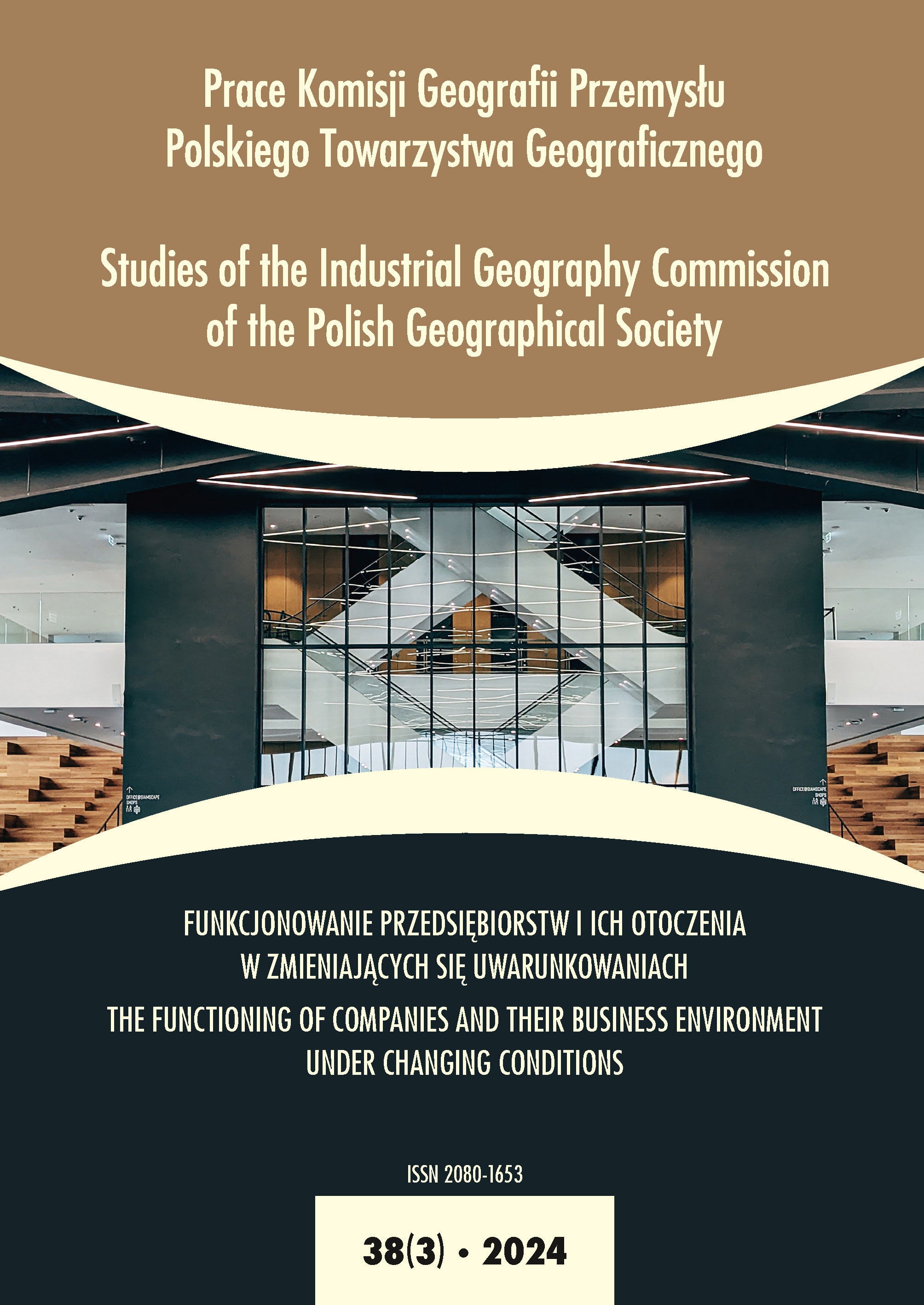Ecological and social aspects in modern business management
DOI:
https://doi.org/10.24917/20801653.383.2Słowa kluczowe:
zielone technologie, społeczna odpowiedzialność biznesu, konkurencyjność, systemy społeczno-ekologiczne i ekonomiczne, strategie zarządzania, procesy biznesoweAbstrakt
The purpose of this work is to assess and analyze the impact of environmental and social factors on enterprise management in the context of the integration of environmental standards and social responsibility into business strategies to ensure sustainable development, as well as to increase competitiveness. In the research, monographic, abstract‑logical methods, as well as systematization and generalization were applied. The article examines the impact of environmental and social factors on business management strategies, considering their importance in the need to ensure the sustainable development of business and corporate responsibility. The methods and tools of the integration of green technologies, sustainable production and corporate social responsibility into the practice of strategic management have been examined. The particularities of the implementation of these management strategies in various business sectors are considered based on their contribution to the formation of competitive advantage and the promotion of investment attraction. It has been shown that in economic systems in which consumers are increasingly aware of the importance of environmental and social issues, enterprises must actively adapt to these changes, using them as an opportunity for their own development and innovation. It has been demonstrated that the implementation of the environmental component is capable of reducing costs due to the reduction in payment for carbon emissions, the requirements for which will be strengthened in the coming years. At the same time, integration of the social component into business management contributes to the formation of the social capital of the enterprise and leads to an increase in the productivity and effectiveness of the work of the employees.
Downloads
Metrics
Bibliografia
Ahmad, H., Yaqub, M., Lee, S.H. (2024). Environmental‑, social‑, and governance‑related factors for business investment and sustainability: A scientometric review of global trends. Environment, Development and Sustainability, 26(2), 2965–2987.
Bansal, P., Roth, K. (2000). Why companies go green: A model of ecological responsiveness. Academy of Management Journal, 43(4), 717–736.
Barauskaite, G., Streimikiene, D. (2021). Corporate social responsibility and financial performance of companies: The puzzle of concepts, definitions and assessment methods. Corporate Social Responsibility and Environmental Management, 28(1), 278–287.
Barbosa, M., Castañeda‑Ayarza, J.A., Ferreira, D.H.L. (2020). Sustainable strategic management (GES): Sustainability in small business. Journal of Cleaner Production, 258, 120880.
Berry, T.C., Junkus, J.C. (2013). Socially responsible investing: An investor perspective. Journal of Business Ethics, 112, 707–720.
Carter, S.J., Ball, D.F., Baron, P.J., Elliott, D. (1995). Environmental auditing: Management strategy. Business Strategy and the Environment, 4(2), 86–94.
Dziamulych, M., Myskovets, I., Zubko, A., Tereshchuk, O., Baidala, V., Voichuk, M. (2022). Formation of the natural resource economics in the system of environmental and economic security.
AD ALTA: Journal of Interdisciplinary Research, 12(2), XXX, 142–146.
EU Carbon Permits. (2024). Trading Economics. Retrieved from: https://tradingeconomics.com/ commodity/carbon (access: 25.03.2024).
EU Emissions Trading System. (2024). Environmental Protection Agency. Retrieved from: https:// www.epa.ie/our‑services/licensing/climate‑change/eu‑emissions‑trading‑system‑/ (access: 25.03.2024).
European Commission. (2024). The European Pillar of Social Rights in 20 principles. Retrieved from: https://ec.europa.eu/social/main.jsp?catId=1606&langId=en (access: 25.03.2024).
Freeman, R.E. (2010). Strategic management: A stakeholder approach. Cambridge: Cambridge University Press.
Handfield, R., Sroufe, R., Walton, S. (2005). Integrating environmental management and supply chain strategies. Business Strategy And The Environment, 14(1), 1–19.
Lin, N., Erickson, B.H. (2008). Theory, measurement, and the research enterprise on social capital. Social Capital: An International Research Program, 1–24.
Oves, M., Khan, M.Z., Ismail, I.M. (eds.). (2018). Modern age environmental problems and their remediation. Cham: Springer International Publishing.
Park, J., Hwang, K., Kim, S.J. (2018). Forming a social partnership between a small social enterprise and a large corporation: A case of the joint platform, H‑JUMP. Sustainability, 10(10), 3612.
Porter, M.E., Linde, C.V.D. (1995). Toward a new conception of the environment‑competitiveness relationship. Journal of Economic Perspectives, 9(4), 97–118.
Shmatkovska, T., Britchenko, I., Voitovych, S., Lošonczi, P., Lorvi, I., Kulyk, I., Begun, S. (2022). Modern information and communication technologies in the digital economy in the system of economic security of the enterprises. AD ALTA: Journal Of Interdisciplinary Research, 12(1), XXVII, 153–156.
Pobrania
Opublikowane
Jak cytować
Numer
Dział
Licencja
Prawa autorskie (c) 2024 Prace Komisji Geografii Przemysłu Polskiego Towarzystwa Geograficznego

Utwór dostępny jest na licencji Creative Commons Uznanie autorstwa – Bez utworów zależnych 4.0 Międzynarodowe.
Artykuły publikowane są zgodnie z warunkami licencji Creative Commons (CC BY-ND 4.0; uznanie autorstwa-bez utworów zależnych).

